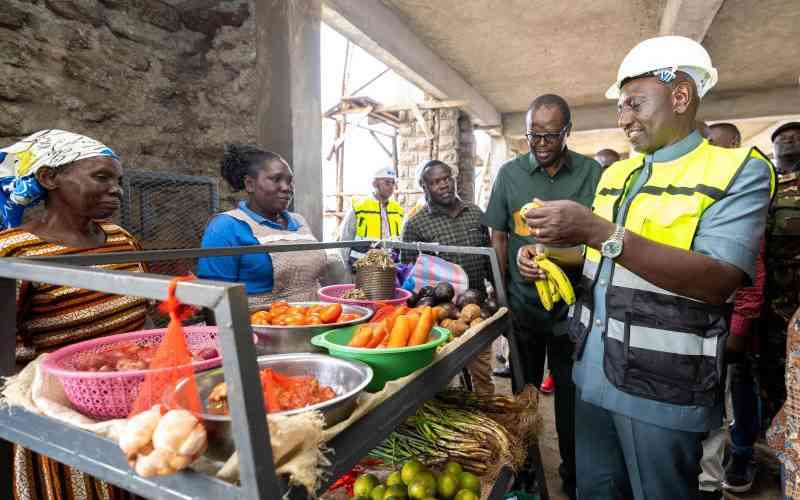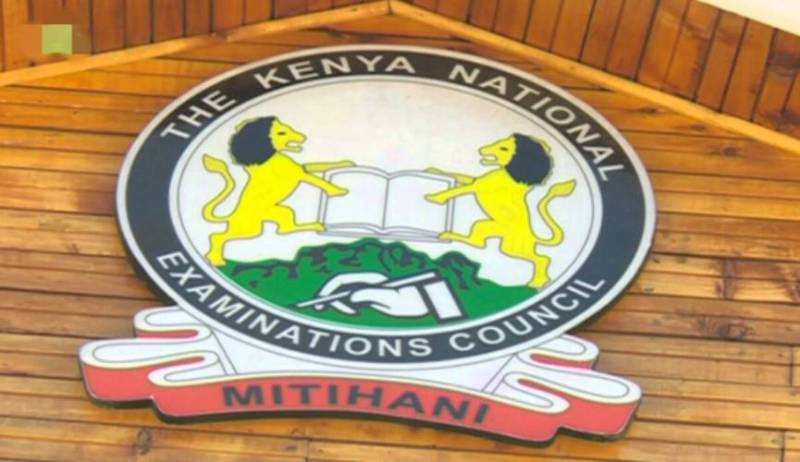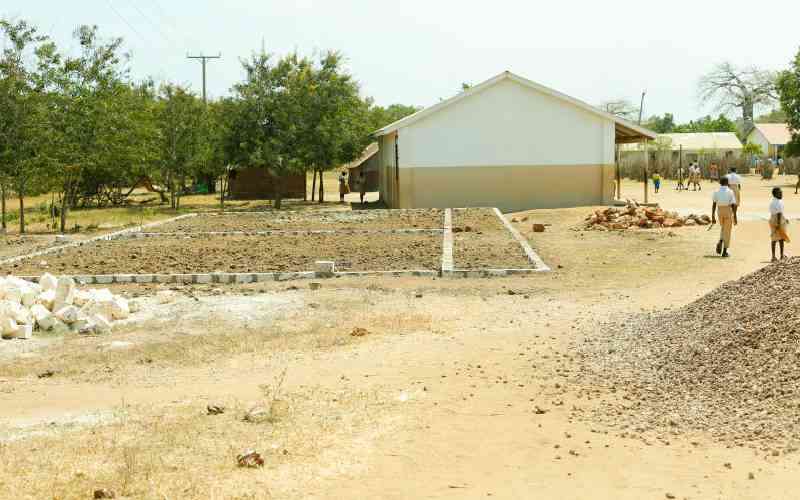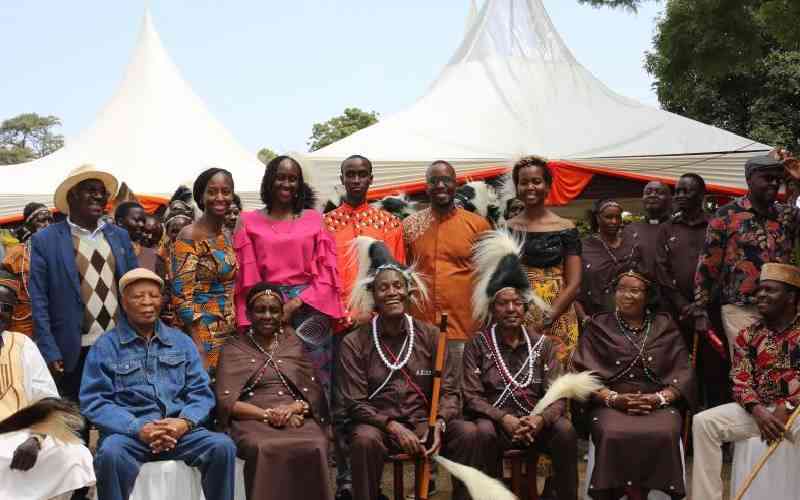A cloud of uncertainty hangs over Form One selection as fears emerged that the process could be manipulated following the Ministry of Education’s decision to withhold candidates’ merit list from the public.
Consequently, stakeholders are worried that this has created an opportunity for some officials to deny deserving students Form One places so as to allocate the slots to their friends through the back door.
The stakeholders, among them parents and a teachers’ union, yesterday expressed reservations and warned that the credibility of the selection process could be dented since candidates' performance was not made available for public scrutiny.
Private schools have also vowed to fight the criteria to be used in admitting this year's Kenya Certificate of Primary Education(KCPE) candidates to Form One.
The Kenya Private Schools Association (KPSA) yesterday said the decision to discontinue ranking had "a sinister motive and is aimed at concealing a lot of injustices" for the children.
"This will be the worst selection process because everything is being done under the table. Kenyans were not shown the merit list, the selection criteria is also not known and the ministry is bent on discriminating against some of the candidates," said KPSA Chief Executive Officer Peter Ndoro.
Kenya National Association of Parents' Secretary General Musau Ndunda said parents were "worried" at the turn of events and had doubts over the Form One selection process.
"We are clearly worried as parents. We haven't seen the list and we are concerned," said Mr Ndunda.
But Education Principal Secretary Belio Kipsang said the placement process to Form One is done transparently and noted that the system picks names based on merit.
"We have an elaborate selection criteria that also includes affirmative action," he said.
Kenya National Union of Teachers (Knut) Secretary General Wilson Sossion said parents must be worried.
"If the process of releasing examination results was not transparent, how can parents trust the selection process? If there have been malpractices previously, how can they convince parents under this opaque process?" wondered Sossion.
He said some senior Ministry of Education officials have previously been arm-twisting secondary school heads to offer them prime places and noted that the habit may escalate.
"We have had reports where selection of some students from certain regions are skewed. We have also had computer errors that admit candidates to schools they were not selected for. Kenyans have the right to information and the ministry must release information," said Sossion.
A circular dated November 24, 2014, and signed by Kipsang says "admission to all categories of public secondary schools will be on merit, quotas, affirmative action and student choice."
Stay informed. Subscribe to our newsletter
"The number to be admitted from either public or private primary schools will be proportionate to the candidature in either category," reads the circular.
Private school, however, said the criteria to be used was "discriminative" and noted that efforts to revise the formula had been frustrated by ministry of Education officials.
Ndoro said of the declared 17,500 slots in national schools, only 4,345 slots were reserved for students from private schools in 2014.
This means that 13,155 slots were allocated to pupils in public schools, constituting some 75 per cent.
Ndoro said based on the current formula, private schools lost some 9,000 slots to public schools. These selections were based on 78 national schools.
According to Education Cabinet Secretary Jacob Kaimenyi, the number of national schools have been increased to 105. At the same time, the number of students joining national schools has steadily risen from 4,460 in 2010 to the current 17,500.
"We do not oppose affirmative action or according opportunities to disadvantaged students. But let the ministry not classify students as private and public," said Ndoro.
He said KPSA had asked that a special committee be constituted to re-look the criteria to avert last-minute wrangles over students' admissions to various categories of schools.
"We were asked by the PS to forward names to form the selection review committee but we haven't heard anything from the ministry again," said Ndoro.
Kipsang, however, said "if there is a time we have consulted the private sector is this time. We are still cleaning the data and we shall get back once we are done".
In their proposals, private schools want 60 per cent of all the slots to national schools shared equally among the over 889,000 candidates who sat this year's KCPE.
They also want 40 per cent of the slots to national schools allocated based on affirmative action.
These proposals by private schools are contained in a document titled 'Form One Selection Proposals for 2015."
"If our proposed formula is implemented, it will increase opportunities for children in marginalised, vulnerable, disadvantaged and hard to reach areas to access education in national schools," reads the report.
It also says the revised formula will encourage learners to work hard in their schools irrespective of where they come from without feeling discriminated.
KPSA says in the document that several candidates who sat last year's KCPE were discriminated against based on the current formula.
Currently, the Government selects two top candidates per district to national schools. The rest of the slots are shared between candidates from public schools and those in private schools based on criteria determined by the ministry.
 The Standard Group Plc is a
multi-media organization with investments in media platforms spanning newspaper
print operations, television, radio broadcasting, digital and online services. The
Standard Group is recognized as a leading multi-media house in Kenya with a key
influence in matters of national and international interest.
The Standard Group Plc is a
multi-media organization with investments in media platforms spanning newspaper
print operations, television, radio broadcasting, digital and online services. The
Standard Group is recognized as a leading multi-media house in Kenya with a key
influence in matters of national and international interest.
 The Standard Group Plc is a
multi-media organization with investments in media platforms spanning newspaper
print operations, television, radio broadcasting, digital and online services. The
Standard Group is recognized as a leading multi-media house in Kenya with a key
influence in matters of national and international interest.
The Standard Group Plc is a
multi-media organization with investments in media platforms spanning newspaper
print operations, television, radio broadcasting, digital and online services. The
Standard Group is recognized as a leading multi-media house in Kenya with a key
influence in matters of national and international interest.





